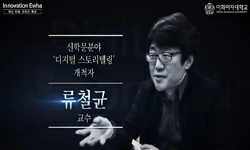This essay argues that Frankenstein and the French Revolution correspondingly present the limitations of evolution and revolution, both of which are grounded in the Enlightenment belief in the capacity of reason. Mary Shelley’s Frankenstein and Edm...
http://chineseinput.net/에서 pinyin(병음)방식으로 중국어를 변환할 수 있습니다.
변환된 중국어를 복사하여 사용하시면 됩니다.
- 中文 을 입력하시려면 zhongwen을 입력하시고 space를누르시면됩니다.
- 北京 을 입력하시려면 beijing을 입력하시고 space를 누르시면 됩니다.
https://www.riss.kr/link?id=A104916438
-
저자
박미경 (경기대학교)
- 발행기관
- 학술지명
- 권호사항
-
발행연도
2014
-
작성언어
English
-
주제어
Enlightenment ; evolution ; Frankenstein ; French Revolution ; monstrosity ; republicanism ; utopia ; 계몽 ; 진화 ; 프랑켄슈타인 ; 프랑스혁명 ; 괴물성 ; 공화주의 ; 유토피아
-
등재정보
KCI등재
-
자료형태
학술저널
- 발행기관 URL
-
수록면
57-84(28쪽)
-
KCI 피인용횟수
0
- 제공처
- 소장기관
-
0
상세조회 -
0
다운로드
부가정보
다국어 초록 (Multilingual Abstract)
Mary Shelley’s Frankenstein and Edmund Burke’s Reflections on the Revolution in France focus on individual scientific and collective political experiments on better kinds of creatures and societies, respectively. The Republic of Geneva, the hometown of Victor Frankenstein in Shelley’s novel, plays the role of connecting Shelley’s work to Burke’s in terms of the fictional realization of a political entity other than a monarchy. As part of fulfilling the infinite progress of human history, the French Revolution planned to establish a republican government and it succeeded until the emergence of Napoleon.
Then, Geneva seems to perfect an ideal political model of republicanism free from tyranny and despotism. The creation of a new species and the formation of a new government reflect utopian projects to bring bliss to humankind.
However, both the individual and collective approaches to utopian projects have monstrous results. Monstrosity hinges both upon Shelley’s and Burke’s critique of failed Enlightenment projects made manifest in the violation of nature, which occurred in the French Revolution and in Victor’s effort to procreate with no female engagement. What’s worse, Victor’s creature acts as the catalyst to reveal the apogee of social injustice prevalent in Geneva, as shown in Justine’s trial. In particular, her innocence is sacrificed for the sake of one of the privileged members of Geneva, namely, Victor Frankenstein. For this reason, the Republic of Geneva apparently demonstrates the limits of its founding principle of republicanism; it remains a partial achievement. Despite Shelley’s sympathetic treatment of the monster, both Shelley and Burke share conservatism that is critical of radical attempts to reform society on account of mere reason. Therefore, Shelley critiques Victor’s transgression of nature and for the most part agrees with Burke’s interpretation of the French Revolution as a monstrous tragic-comedy. Insofar as the theories of enlightenment, evolution, and revolution do not sufficiently acknowledge their limitations and self-destructiveness, each ultimately undermines the values that led to its inception and its ensuing development. Shelley’s novel and Burke’s work are two examples that demonstrate the very possibility and limits of the Enlightenment’s utopian projects on the basis of human rationality; both of them bear witness to the critical spirit integral to enlightenment in Kant’s terms.
This essay argues that Frankenstein and the French Revolution correspondingly present the limitations of evolution and revolution, both of which are grounded in the Enlightenment belief in the capacity of reason.
Mary Shelley’s Frankenstein and Edmund Burke’s Reflections on the Revolution in France focus on individual scientific and collective political experiments on better kinds of creatures and societies, respectively. The Republic of Geneva, the hometown of Victor Frankenstein in Shelley’s novel, plays the role of connecting Shelley’s work to Burke’s in terms of the fictional realization of a political entity other than a monarchy. As part of fulfilling the infinite progress of human history, the French Revolution planned to establish a republican government and it succeeded until the emergence of Napoleon.
Then, Geneva seems to perfect an ideal political model of republicanism free from tyranny and despotism. The creation of a new species and the formation of a new government reflect utopian projects to bring bliss to humankind.
However, both the individual and collective approaches to utopian projects have monstrous results. Monstrosity hinges both upon Shelley’s and Burke’s critique of failed Enlightenment projects made manifest in the violation of nature, which occurred in the French Revolution and in Victor’s effort to procreate with no female engagement. What’s worse, Victor’s creature acts as the catalyst to reveal the apogee of social injustice prevalent in Geneva, as shown in Justine’s trial. In particular, her innocence is sacrificed for the sake of one of the privileged members of Geneva, namely, Victor Frankenstein. For this reason, the Republic of Geneva apparently demonstrates the limits of its founding principle of republicanism; it remains a partial achievement. Despite Shelley’s sympathetic treatment of the monster, both Shelley and Burke share conservatism that is critical of radical attempts to reform society on account of mere reason. Therefore, Shelley critiques Victor’s transgression of nature and for the most part agrees with Burke’s interpretation of the French Revolution as a monstrous tragic-comedy. Insofar as the theories of enlightenment, evolution, and revolution do not sufficiently acknowledge their limitations and self-destructiveness, each ultimately undermines the values that led to its inception and its ensuing development. Shelley’s novel and Burke’s work are two examples that demonstrate the very possibility and limits of the Enlightenment’s utopian projects on the basis of human rationality; both of them bear witness to the critical spirit integral to enlightenment in Kant’s terms.
참고문헌 (Reference)
1 Page, Michael R., "The Literary Imagination from Erasmus Darwin to H. G. Wells: Science, Evolution, and Ecology" Ashgate 71-110, 2012
2 Philp, Mark., "The Enlightenment World" Routledge 457-472, 2004
3 Williams, Howard., "The Enlightenment World" Routledge 635-647, 2004
4 Ferguson, Frances., "The Enlightenment World" Routledge 610-620, 2004
5 Brooks, Peter., "The Endurance of Frankenstein: Essays on Mary Shelley’s Novel" U of California P 205-220, 1974
6 Sterrenburg, Lee., "The Endurance of Frankenstein: Essays on Mary Shelley’s Novel" U of California P 143-171, 1974
7 Mellor, Anne K., "The Cambridge Companion to Mary Shelley" Cambridge UP 9-25, 2003
8 Bromwich, David., "The Cambridge Companion to British Literature of the French Revolution in the 1790s" Cambridge UP 16-30, 2011
9 팡리, "The Artistic Failure of Victor Frankenstein: Galatea Rejected, Prometheus as a Misfit, and Mary Shelley’s Critique of Romantic Hellenism" 영미문학연구회 23 (23): 139-158, 2012
10 Burke, Edmund., "Reflections on the Revolution in France and on the Proceedings in Certain Societies in London Relative to That Event Intended to Have Been Sent to a Gentleman in Paris" Penguin 1986
1 Page, Michael R., "The Literary Imagination from Erasmus Darwin to H. G. Wells: Science, Evolution, and Ecology" Ashgate 71-110, 2012
2 Philp, Mark., "The Enlightenment World" Routledge 457-472, 2004
3 Williams, Howard., "The Enlightenment World" Routledge 635-647, 2004
4 Ferguson, Frances., "The Enlightenment World" Routledge 610-620, 2004
5 Brooks, Peter., "The Endurance of Frankenstein: Essays on Mary Shelley’s Novel" U of California P 205-220, 1974
6 Sterrenburg, Lee., "The Endurance of Frankenstein: Essays on Mary Shelley’s Novel" U of California P 143-171, 1974
7 Mellor, Anne K., "The Cambridge Companion to Mary Shelley" Cambridge UP 9-25, 2003
8 Bromwich, David., "The Cambridge Companion to British Literature of the French Revolution in the 1790s" Cambridge UP 16-30, 2011
9 팡리, "The Artistic Failure of Victor Frankenstein: Galatea Rejected, Prometheus as a Misfit, and Mary Shelley’s Critique of Romantic Hellenism" 영미문학연구회 23 (23): 139-158, 2012
10 Burke, Edmund., "Reflections on the Revolution in France and on the Proceedings in Certain Societies in London Relative to That Event Intended to Have Been Sent to a Gentleman in Paris" Penguin 1986
11 Kant, Immanuel., "Political Writings" Cambridge UP 54-60, 1991
12 Kant, Immanuel., "Political Writings" Cambridge UP 93-130, 1991
13 Kant, Immanuel., "Political Writings" Cambridge UP 176-190, 1991
14 Baldick, Chris., "In Frankenstein’s Shadow : Myth, Monstrosity and Nineteenth-century Writing" Clarendon 1987
15 Paulson, Ronald., "Gothic Fiction and the French Revolution" 48 : 532-554, 1981
16 Hunter, Allan K., "Frankenstein’s Science: Experimentation and Discovery in Romantic Culture, 1780-1830" Ashgate 133-149, 2008
17 Butler, Marilyn., "Frankenstein. Mary Shelley" Norton 302-313, 1996
18 Shelley, Mary., "Frankenstein, or The Modern Prometheus" Norton 1996
19 Bender John., "Ends of Enlightenment" Stanford UP 38-56, 2012
20 Adorno, Theodor W., "Dialectic of Enlightenment:Philosophical Fragments" Stanford UP 2002
21 Butler, Marilyn., "Burke, Paine, Godwin, and the Revolution Controversy" Cambridge UP 1984
22 Aldiss, Brian W., "Billion Year Spree: The True History of Science Fiction" Doubleday 1973
동일학술지(권/호) 다른 논문
-
- 한국외국어대학교 영미연구소
- 강지현
- 2014
- KCI등재
-
- 한국외국어대학교 영미연구소
- 고길환(Geel Hwan Ko)
- 2014
- KCI등재
-
Monstrosity in the Enlightenment's Utopian Projects of Frankenstein and the French Revolution
- 한국외국어대학교 영미연구소
- Mikyung Park
- 2014
- KCI등재
-
- 한국외국어대학교 영미연구소
- 성정혜(Sung Junghye)
- 2014
- KCI등재
분석정보
인용정보 인용지수 설명보기
학술지 이력
| 연월일 | 이력구분 | 이력상세 | 등재구분 |
|---|---|---|---|
| 2026 | 평가예정 | 재인증평가 신청대상 (재인증) | |
| 2020-01-01 | 평가 | 등재학술지 유지 (재인증) |  |
| 2017-01-01 | 평가 | 등재학술지 유지 (계속평가) |  |
| 2014-01-13 | 학술지명변경 | 한글명 : Journal of British & American Studies -> 영미연구외국어명 : 미등록 -> Journal of British & American Studies |  |
| 2013-01-01 | 평가 | 등재 1차 FAIL (등재유지) |  |
| 2010-01-01 | 평가 | 등재학술지 선정 (등재후보2차) |  |
| 2009-01-01 | 평가 | 등재후보 1차 PASS (등재후보1차) |  |
| 2008-01-01 | 평가 | 등재후보 1차 FAIL (등재후보1차) |  |
| 2007-01-01 | 평가 | 등재후보학술지 유지 (등재후보1차) |  |
| 2005-01-01 | 평가 | 등재후보학술지 선정 (신규평가) |  |
학술지 인용정보
| 기준연도 | WOS-KCI 통합IF(2년) | KCIF(2년) | KCIF(3년) |
|---|---|---|---|
| 2016 | 0.17 | 0.17 | 0.18 |
| KCIF(4년) | KCIF(5년) | 중심성지수(3년) | 즉시성지수 |
| 0.16 | 0.15 | 0.462 | 0.15 |




 KCI
KCI







